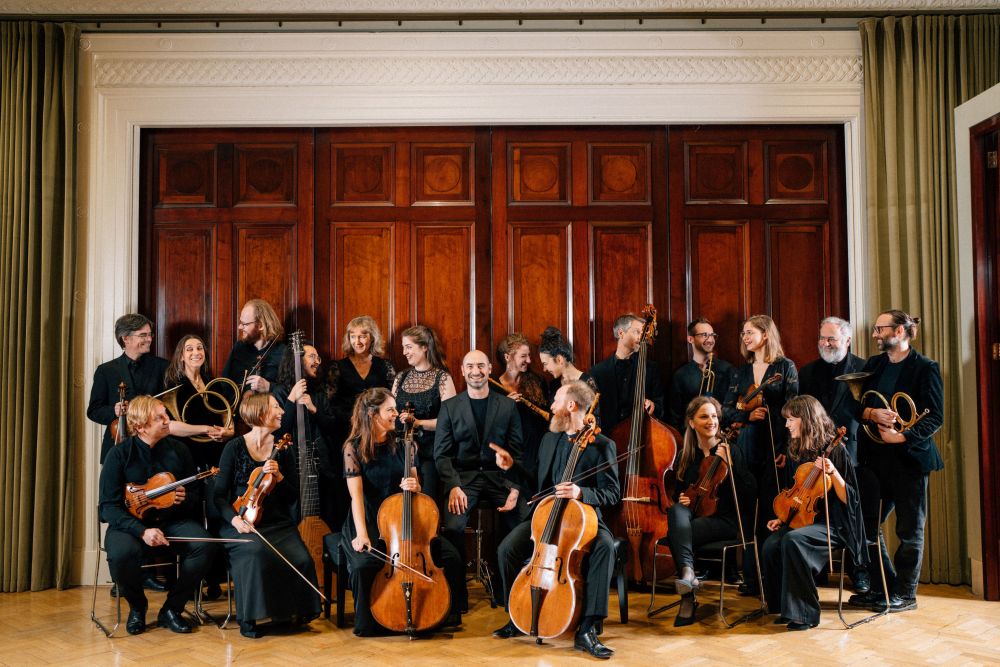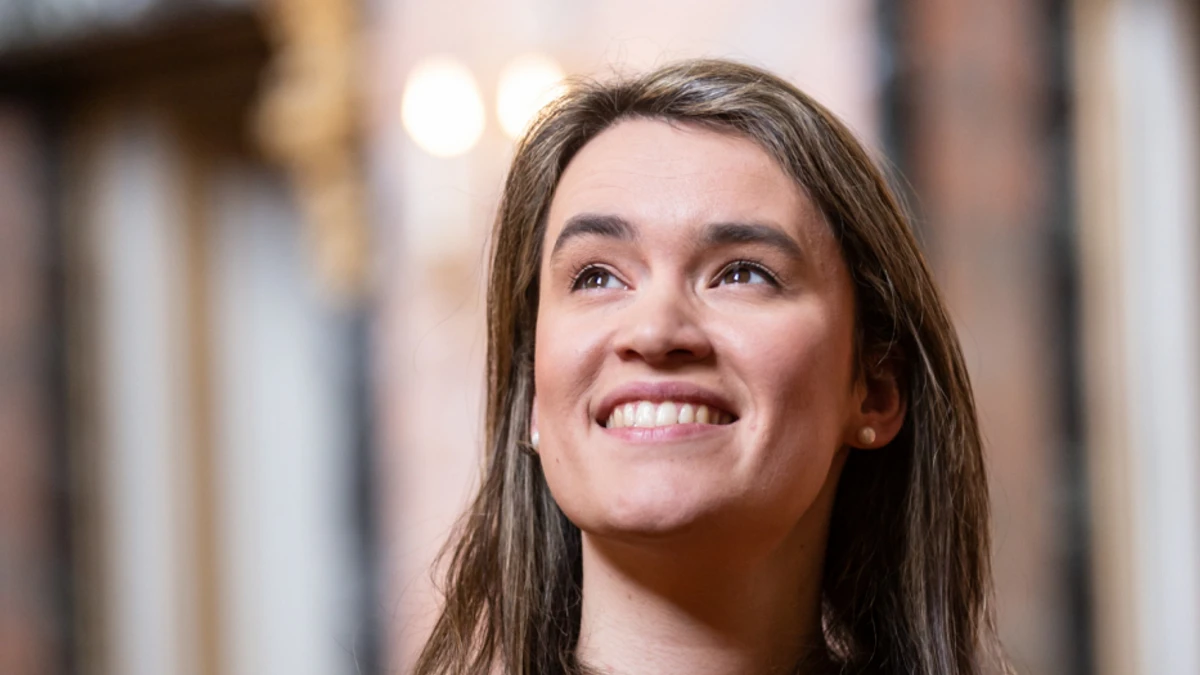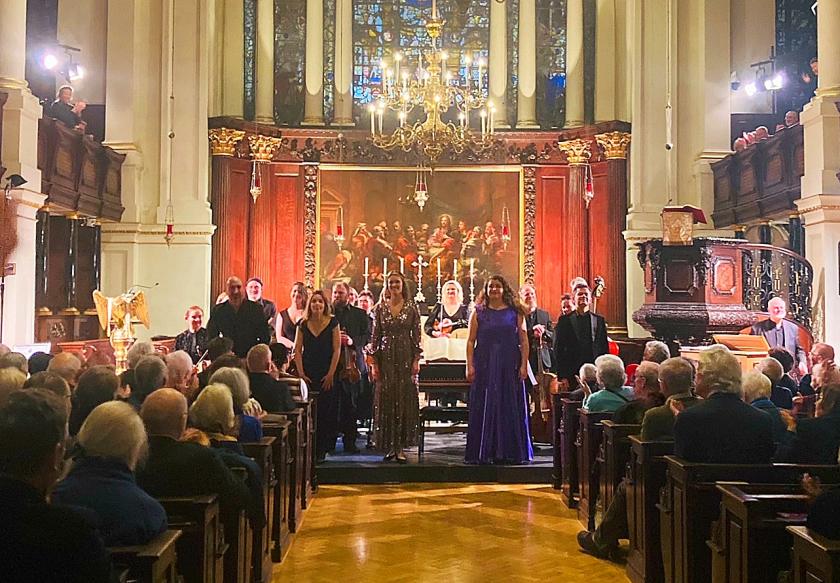Imagine if Bach had set Cardinal Benedetto Pamphili’s allegory of Beauty breaking free from Pleasure with the guidance of Time and Enlightenment: he’d probably have hit the spiritual highs. The 21-year-old Handel, at least as this multifaceted performance so vigorously and poetically argued, plumps for hedonistic delights.
Despite a radiant quiet curtain praising the truer, purer heavenly love, it was Pleasure in the shape of mezzo-in-a-thousand Helen Charlston who held us captive, along with the rainbow hues Peter Whelan drew from his phenomenally responsive Irish Baroque Orchestra in this highlight of the London Handel Festival 2025.
The snag was a relatively late replacement for Hilary Cronin, who we know to have all the colours in the voice to carry Bellezza's arduous journey from the court of earthly delights to the plains of heaven. Though the substitute, Rowan Pierce, has indeed vocal beauty and soared at the ends of both long parts, her character remained essentially unchanged, one-note, throughout.  Whelan had originally cast four singers capable of operatic opulence who nevertheless seemed to have greater ease than PIerce with rapid runs, the vocal counterpart of his tireless IBO (the full complement pictured above by Pawel Bebenca) who charged us up with sudden surprises as early as the Sonata-Overture, excelled in solos (especially the incredibly refined ones from first violin Colin Scobie) and made sure all da capos, the sometimes unwelcome back-to-the-top following middle sections, had dynamic variety. Even in a performance as compelling as this, you wish there weren't so many; at a few points, the evening felt every inch of its three hours and the work could have been split over two nights. Shame about the clunky organ solo in a veritable concerto at Pleasure's court,
Whelan had originally cast four singers capable of operatic opulence who nevertheless seemed to have greater ease than PIerce with rapid runs, the vocal counterpart of his tireless IBO (the full complement pictured above by Pawel Bebenca) who charged us up with sudden surprises as early as the Sonata-Overture, excelled in solos (especially the incredibly refined ones from first violin Colin Scobie) and made sure all da capos, the sometimes unwelcome back-to-the-top following middle sections, had dynamic variety. Even in a performance as compelling as this, you wish there weren't so many; at a few points, the evening felt every inch of its three hours and the work could have been split over two nights. Shame about the clunky organ solo in a veritable concerto at Pleasure's court,
Though Time (Tempo) and Enlightenment (Disinganno) offer fixed parental guidance, tenor James Way seized the vivid moments, above the richly visual frisson-making images of "Urne voi", Time literally getting his teeth in to "spectres of grief, ghastly skeletons", while Jess Dandy's refulgent contralto worked surprisingly well in recorder-gilt pastorals.
The greater glories, though, belong to Pleasure (Piacere), especially in Part Two. where Handel's typical post-interval depths in Beauty's "Io sperai trovar nel vero", finely plumbed by Pierce but with the real pain in Antoine Torunczyk's searing baroque oboe, were capped by Charlston's "Tu giurasti". The vocal thrill went hand in steel glove with the IBO strings: so much ferocious underpinning from a mere two cellos and one double bass.  Pleasure also gets the number everyone recognises, "Lascia la spina", reworked as "Lascia ch'io piange" in Rinaldo; Charlston's tonal range capped only by the vocal one in the eleven o'clock fire of "Come nembo che fugge", as dizzying a piece of mezzo dudgeon and display as any you'll hear. This singer is decisively among the greats of our time (Charlston pictured above by Oscar Ortega). As are Whelan and his orchestra, putting so much work into what turns out to be a single performance. Even Ireland didn't get to hear it this time, so a few Dubliners had come over specially. This is surely not the last we'll hear of the IBO Trionfo.
Pleasure also gets the number everyone recognises, "Lascia la spina", reworked as "Lascia ch'io piange" in Rinaldo; Charlston's tonal range capped only by the vocal one in the eleven o'clock fire of "Come nembo che fugge", as dizzying a piece of mezzo dudgeon and display as any you'll hear. This singer is decisively among the greats of our time (Charlston pictured above by Oscar Ortega). As are Whelan and his orchestra, putting so much work into what turns out to be a single performance. Even Ireland didn't get to hear it this time, so a few Dubliners had come over specially. This is surely not the last we'll hear of the IBO Trionfo.













Add comment